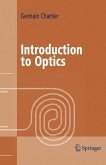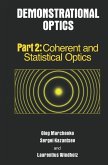In this second volume of the book series devoted to photorefractive effects we focus on the most recent developments in the field of photorefractive materials and we highlight the parameters which govern the photoinduced nonlinearity. The availability of materials having the required properties is of major importance for further development of this field, and there are many parameters which have to be considered in the figure of merit of a photorefractive material. As an example, it concerns in priority, the recording slope of the dynamic hologram and the saturation value of the index modulation which are specific characteristics of a given material. However, other features like spectral sensitivity range, dark storage time, material stability and power handling capabilities are also critical parameters to consider when using the crystal for advanced applications in laser photonics. There are a large diversity of potential materials which exhibit interesting photorefractive properties, like ferroelectric or non ferroelectric electro-optic crystals, semi insulating semiconductors or electro-optic polymers. If the basic mechanisms for space charge recording are well established, it is now required to have a very precise and extended knowledge of the physics of the charge transfer and related mechanisms which arises in doped materials. Also, we must know the material response for different conditions of hologram recording wavelength, laser intensity, continuous or pulsed regime. These research achievements on the physics of the photorefractive materials is of great importance in order to optimize or to tailor material properties. The main purpose of this second volume is to highlight the advances in material research but also including crystal growing conditions or material preparations and their impact on photorefractive performances. Following this objective, the reader will find in this book very detailed analysis on the material physics : investigations ofdefects in crystal, growing of stochiometric LiNbO3 or LiTaO3, a new crystal Sn2P2S6 for the near infrared, Quantum Well semiconductor structures and Sillenites. Beside the conventional electro-optic crystals, the volume also deals with organic photorefractive materials. Large progress have been made in the field recently in term of material sensitivity and efficiency under applied electric field. It is undoubtly a class of material of growing interest. We are confident that new advances will be done on the chemistry and on the synthesis of the polymers for a better control and optimization of the photorefractive properties. A closely related field is the photorefractive effect in liquid crystals materials, which exhibit attractive perspectives due to their large photoinduced index modulation. We also outline in this volume two other contributions which have an important impact for applications : the mechanisms of permanent photoinduced gratings in Silica-glass fibers used as wavelength selective Bragg filters and the growing of materials like LiNbO3 which have to be highly resistant to photorefractive damage for electro-optic and nonlinear optic applications. This volume gives an in depth review of the present understanding of the fundamental origins of the effect in a variety of materials. All the materials considered in this volume will play a significant role in the development of applications such as presented in the third volume of this serie. The contribution of the material is determinant for new progress in the field of photorefractive nonlinear optics. It is therefore most important to stimulate significant efforts of research on the basic physical phenomena in different materials. These research achievements may contribute to the discovery of new class of photorefractive material or will permit to optimize the performances of existing materials.








